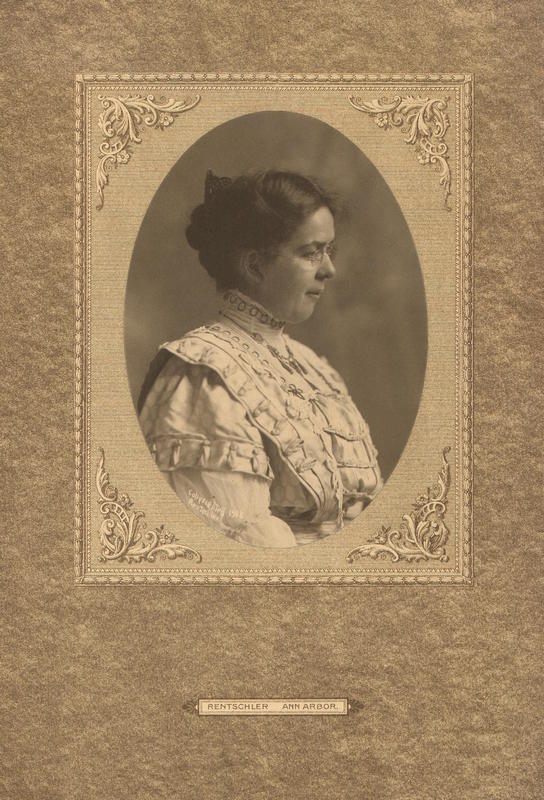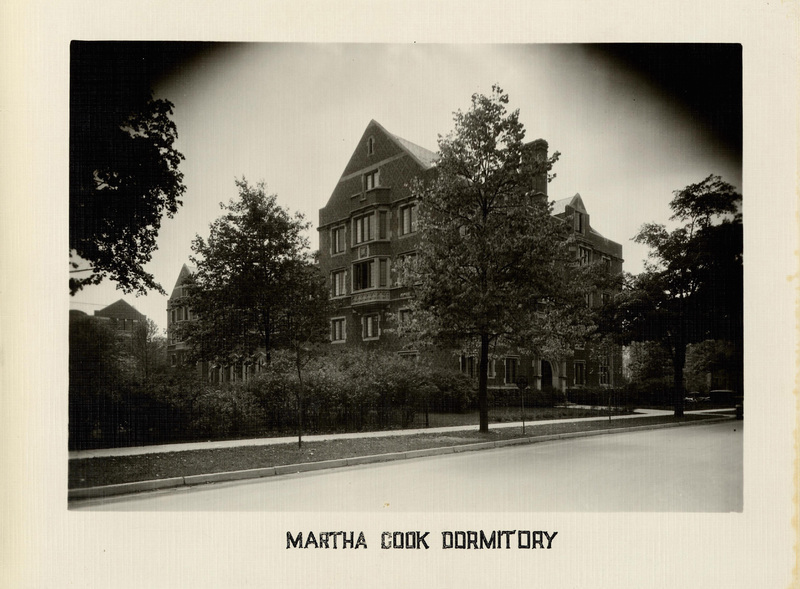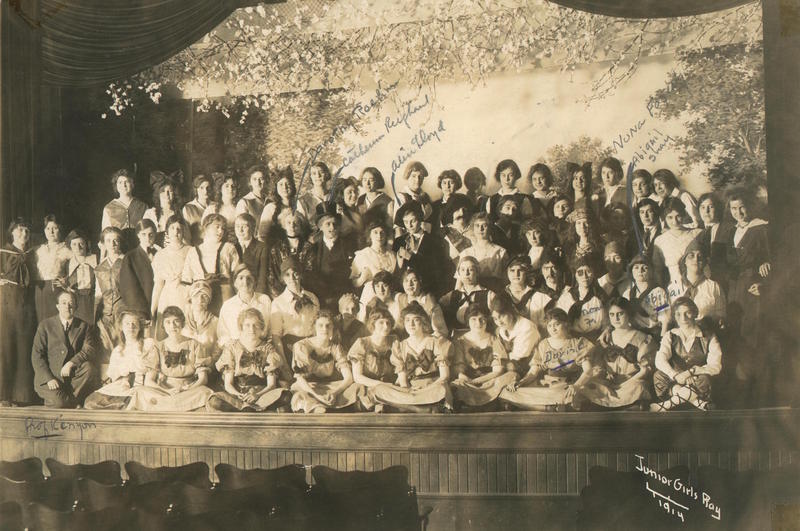Myra Beach Jordan
As Dean Mosher began to tire of her work as Dean of Women she exchanged several letters with President Angell informing him of her intent to leave. She begged him to "seek the 'other woman' as well or better suited than myself."1 Though he did not wish to see Dean Mosher depart, Angell was not sure if the University should continue to have a Dean of Women at all. He wrote to the acting President of the University of Wisconson-Madison, Edward A. Birge, and got this reply: "[A] Women's Dean is probably a necessity, but it seems to me an extraordinariiy difficult task to find the right person... She must be one who combines in a high degree the university temper for freedom with the ability to influence strongly, or even to control, the actions of young women."2
Myra Beach Jordan was chosen by President Angell to be the next Dean of Women. She set an important precedent for the Office of the Dean of Women in that unlike Dean Mosher, Dean Jordan did not teach any academic classes. Her focus was primarily on women's housing, rules, and regulations. It was during her time as Dean of Women that the policy of in loco parentis officially began.
Dean Jordan established women’s League Houses and initiated the system requiring women to live in Dean-approved housing. She was also successful in encouraging alumni to donate funds for women's residences, leading to the creation of Martha Cook Hall (1915), Helen Newberry Residence (1915), the Alumnae House (1917), Betsy Barbour House (1920) and Adelia Cheever House (1921) all during her tenure.
While the in loco parentis policy began during her time, it did not immediately reach all women students. One student, Hearty Brown Nelson, who attended Michigan while Jordan was Dean wrote, "[We] lived in private houses outside of University control...We had a Dean of Women but the poor dear had no authority."3 This was not how it would remain. By the end of Dean Jordan's time at Michigan, and certainly by the beginning of Dean Hamilton's tenure, in loco parentis was an estabilshed and respected policy.
Dean Jordan also implemented many traditions for women that would last decades, such as the Junior Girl’s play and honors societies. She worked closely with the Women’s League and largely set the precedent for the duties of the Dean of Women until its discontinuation.
1. Eliza Mosher to James B. Angell, January 14, 1902, James B. Angell Collection, Bentley Historical Library, University of Michigan.
2. Edward A. Birge to James B. Angell, June 3, 1902, James B. Angell Collection, Bentley Historical Library, University of Michigan.
3. Hearty Brown Nelson, Growing Up in Michigan (1969), 10.



